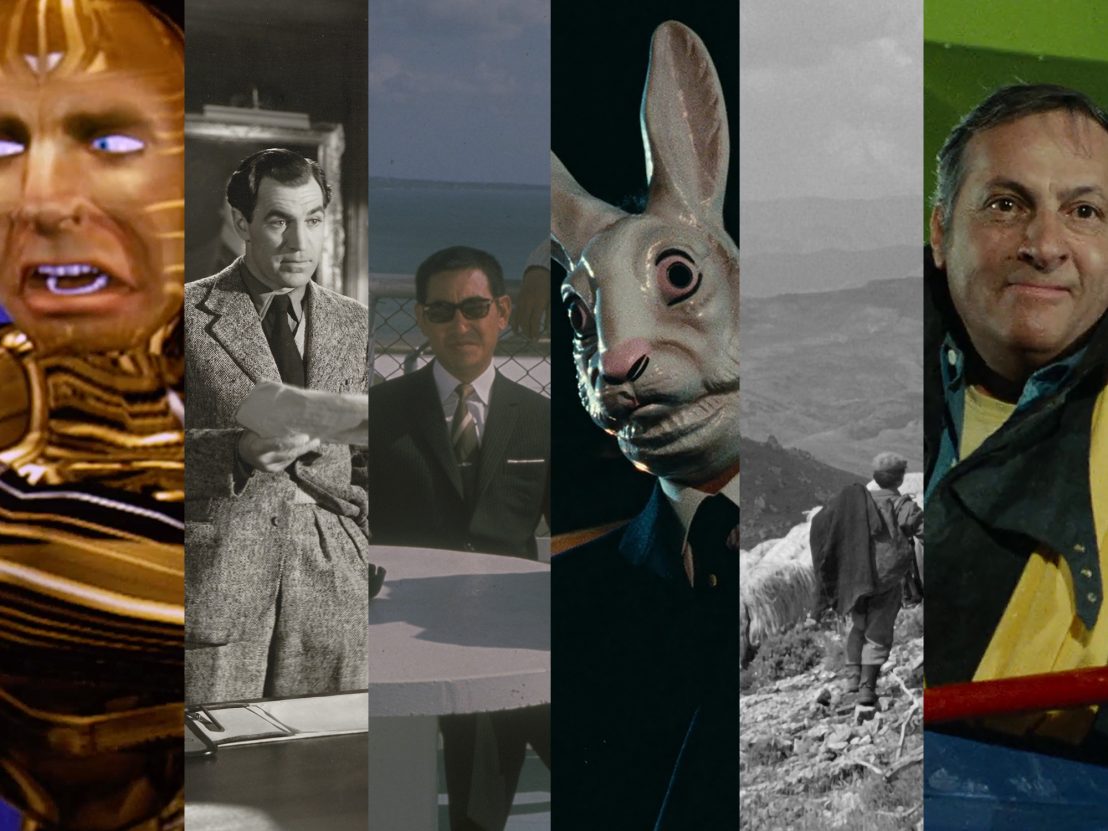
Anton Bitel provides a look at six titles heading to streaming and physical media releases this month that you should add to the top of your viewing list.
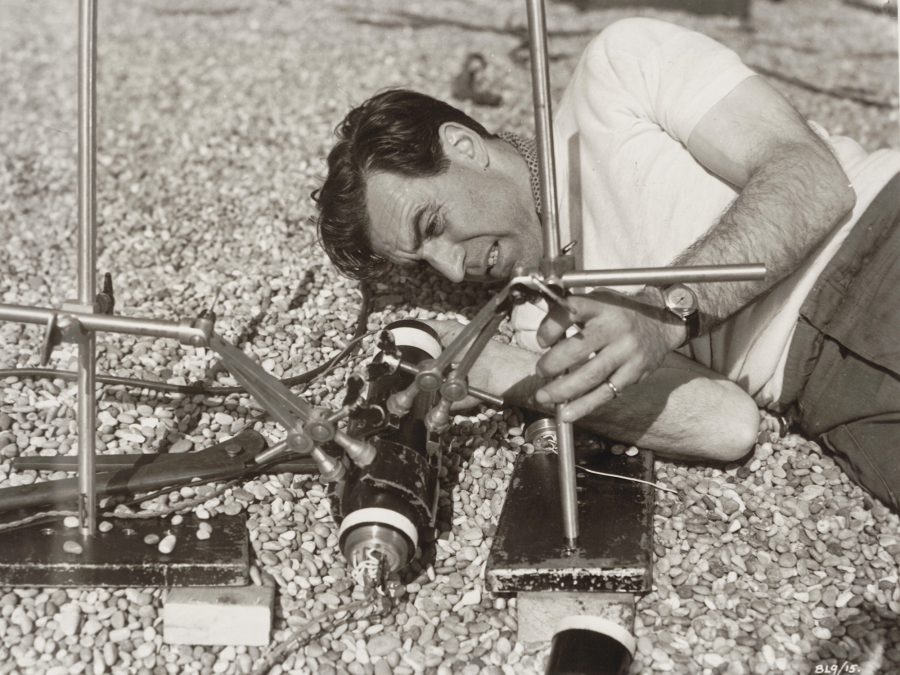
The Small Back Room (aka Hour of Glory), dir. Michael Powell and Emeric Pressburger, 1949
Set in the London Spring of 1943, and adapted from Nigel Balchin’s novel published in the same year, this film with its modest title also focuses on a collection of modest figures in Britain’s war effort: the so-called ‘backroom boys’ who worked in science and engineering behind the (battle) scenes.
The clandestine ‘Research Section’ may be run by old Professor Mair (Milton Rosmer), but Sammy Rice (David Farrar) is “the brains of the outfit”, even if he is held back, both literally and metaphorically, by a prosthetic foot which give him a limping gait, ceaseless pain and considerable shame. He must contend with devious, often dumb bureaucrats and politicians, and with his own tendencies for self-pity and alcoholic self-destruction, as he struggles both to hold on to his sympathetic girlfriend Susan (Kathleen Byron) and to defuse a dangerous new kind of German explosive device.
Following the Technicolor extravagance of their The Red Shoes from the previous year, this monochrome release from Powell and Pressburger is a much more subdued affair — but that diminished scale suits a film about a kind of stiff-upper-lip domestic heroism which was understated, unseen and largely unsung during the war years.
The Small Back Room is available on Blu-ray/DVD/digital from 3 June via StudioCanal
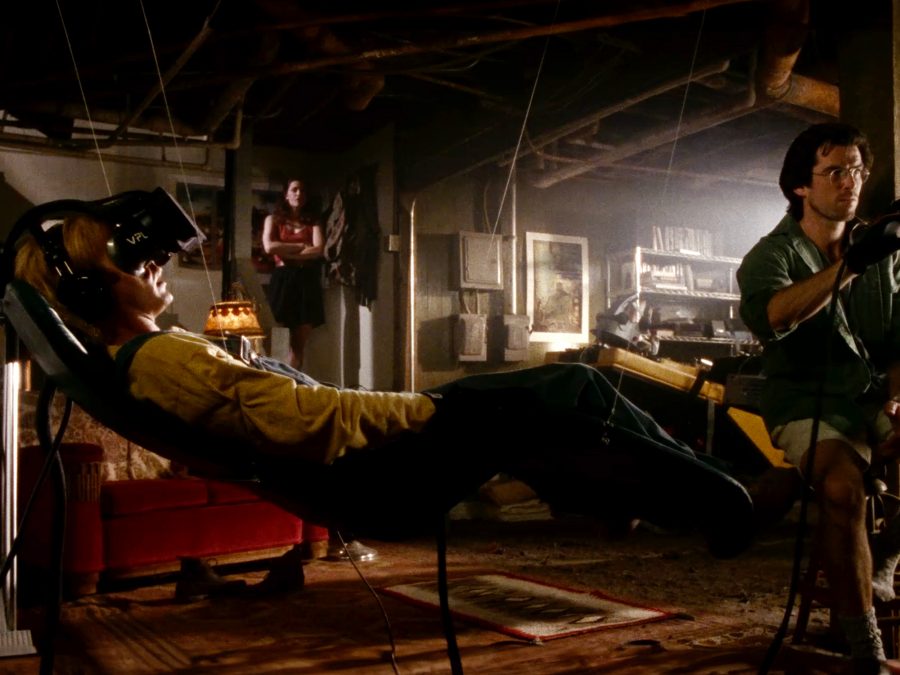
The Lawnmower Man, dir. Brett Leonard, 1992
After his chimp subject dies, Dr Lawrence Angelo (Pierce Brosnan) continues his experiments in nootropics and accelerated VR learning on local intellectually disabled lawnmower man Jobe Smith (Jeff Fahey), only to see the low-IQ labourer rapidly turn into a genius with psionic powers (and a vengeful streak) who wants to become a god in global cyberspace before the military can seize him as an asset.
Brett Leonard’s sci-fi thriller is a curio. Leave aside the laughably rudimentary, then cutting-edge early Nineties CG effects, the utterly bizarre kill sequences, or the fact that Stephen King litigated to have his name removed from the credits because of the film’s immense distance from his 1975 short story of the same name, and you still have a supposedly relatable protagonist who hardly treats Jobe better than the town bully (John Laughlin) or the abusive priest (Jeremy Slate).
Lawrence grooms Jobe, enticing him into his home with video games like a paedophile (“you must never tell anyone,” he says), and taking advantage of Jobe’s incomprehension to expose him to all manner of dangerous procedures. While ultimately the villain, Jobe is also a victim, and his retreat into the virtual world is entirely understandable.
The Lawnmower Man is available on Blu-ray in a boxset, in both theatrical and director’s cut, along with Farhad Mann’s Lawnmower Man 2: Beyond Cyberspace (1995) from 10 June via 101 Film
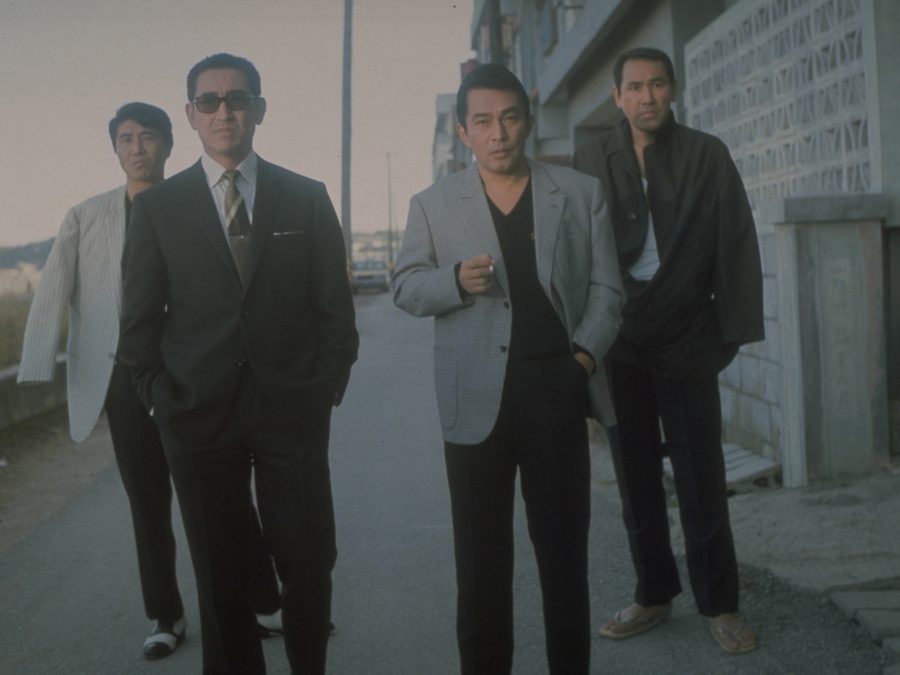
Sympathy for the Underdog (Bakuto gaijin butai), dir. Kinji Fukasaku, 1971
“I don’t do things halfway,” says gangster Noburo Kudo (Noburo Ando), about halfway through Kinji Fukasaku’s film, “We’re into it now, let’s go all the way.” His former rival turned friend Masuo Gunji (Kōji Tsuruta) can only agree.
Fresh out of a ten-year stint in a Yokohama prison, Gunji has reassembled the remnants of his old gang, and moved in on Naha, Okinawa, whether for the criminal opportunities the American-occupied island capital offers, or perhaps because he is looking for his ex-lover there. This leads to conflicts with new local gangs, as well as with his old enemies from the mainland, as he and Kudo prove gutsy albeit outnumbered underdogs in some very unfair fights.
The ninth and final entry in Toei Studios Bakuto (‘Gambler’) series, this may be a yakuza film, but it plays more like noir, not least thanks to Takeo Yamashita’s hard jazz score, the flashbacks told in stylised photomontages, and the brooding fatalism that pervades everything. These characters are all in, even if they know there can be no going back, and as Gunji, sporting his characteristic shades, cuts a cool figure, this will also be his last stand, and his glorious revenge.
Sympathy for the Underdog is available on Blu-ray from 24 June via Radiance Films

Bandits of Orgosolo (Banditi a Orgosolo), dir. Vittorio De Seta, 1960
“Starring Sardinian shepherds” reads text near the beginning of Vittorio De Seta’s feature debut. This use of local, non-professional actors, all uncredited and, one suspects, playing versions of themselves, is part of De Seca’s allegiance to realism and his almost ethnographic approach to his subjects, whose harsh, ‘primitive’ (as a narrator puts it) way of life easily draws them to banditry.
The main character is Michele, a gruffly decent, modest man who, with his little brother, tends a flock of sheep on the outskirts of Orgosolo. When bandits from another part of the island — really just shepherds like Michele who have fallen into desperate times — seek refuge in his sheepfold, he finds himself blamed by the Carabinieri for their crimes. Going on the run, losing everything and acquiring further debts, Michele too finally turns to acts of theft and violence, while passing on the same legacy to his victim as the earlier bandits had to Michele himself.
“I don’t have a choice anymore,” says Michele near the film’s end — and that sense of inevitability is what gives De Seca’s anthropological observations such a tragic trajectory. Here misery and criminality are not just readily acquired, but redistributed across the entire community.
Bandits of Orgosolo is available on Blu-ray, with a second disc of 10 short films by De Seta, from 24 June via Radiance
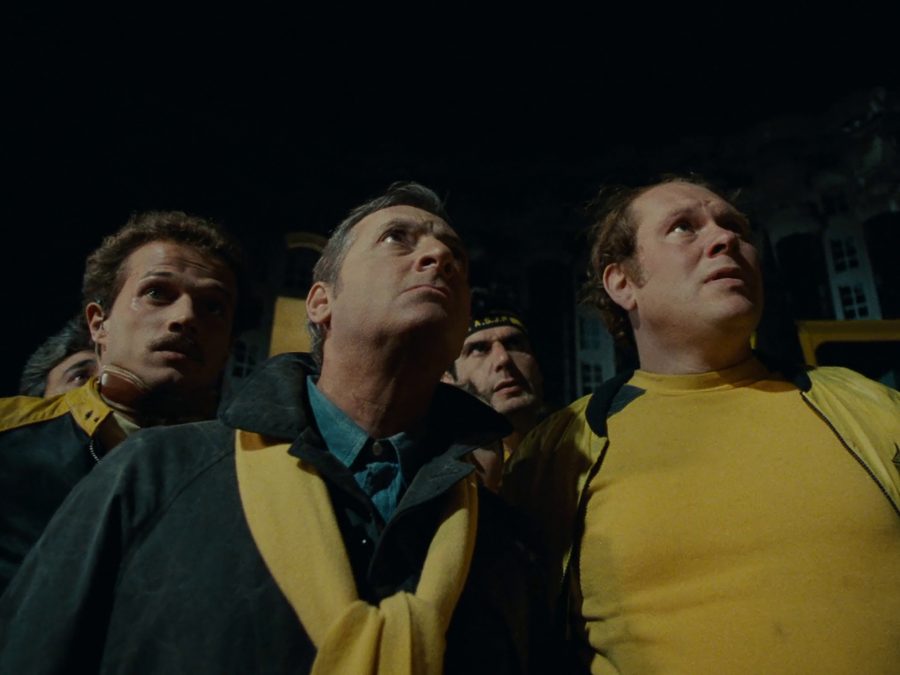
Kill The Referee (À mort l’arbitre), dir. Jean-Pierre Mocky, 1984
“I don’t give a fuck about sports,” says the jaded, permanently smoking Inspector Granowski near the beginning of Jean-Pierre Mocky’s film, adapted from Alfred Draper’s 1972 novel The Death Penalty. The fact that Granowski is played by Mocky lends these words a certain programmatic authority, and sure enough, this film is less about the beautiful game than its occasionally ugly fans.
When, during the European Cup, referee Maurice (Eddy Mitchell) calls a penalty that leads to the Yellows losing the game, a group of hardcore supporters, led by middle-aged clownish psychopath Rico (Michel Serrault), seeks satisfaction from Maurice — but as their nocturnal pursuit of Maurice and his girlfriend Martine (Carole Laure) leads to catastrophic consequences, with Rico blaming every misstep of his own on Maurice, soon this band of thugs want less to “fuck the referee” (their stadium catchcry) than to kill him, even as Granowski struggles to sort through the incomprehensible chaos.
This vicious siege/chase thriller (like Paul Donovan and Maura O’Connell’s Self Defense from the previous year) also constantly traces the romance between Maurice and Martine, and is full of eccentric character comedy, letting Mocky score with the kind of tonal madness that was his forte.
Kill The Referee is available on Blu-ray as part of the boxset The Agitator: Three Provocations from the Wild World of Jean-Pierre Mocky (also including Litan, 1982 and Agent Trouble, 1987) from 24 June via Radiance Films
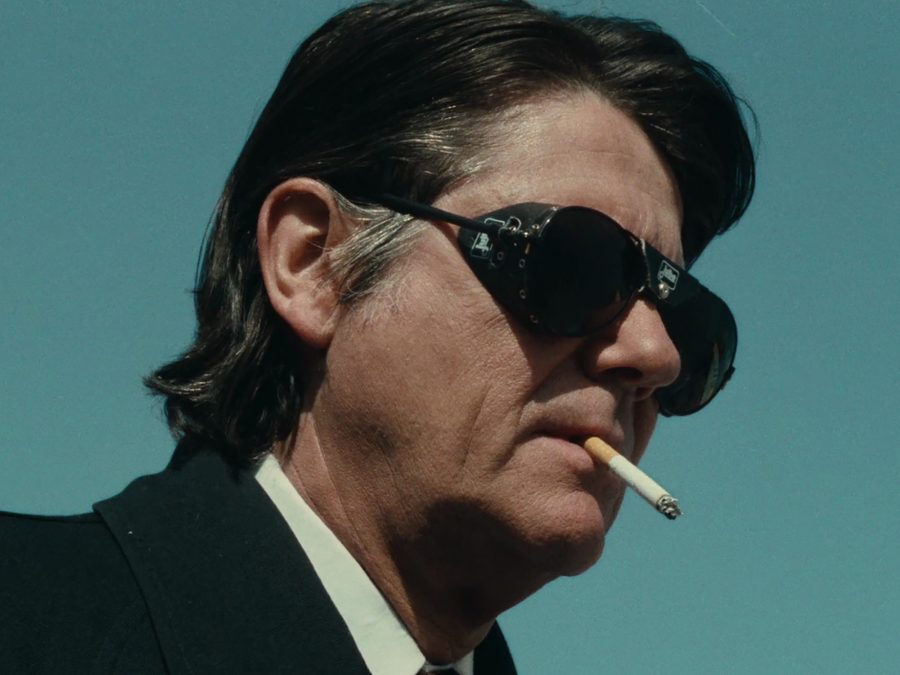
Agent Trouble, dir. Jean-Pierre Mocky, 1987
“A man finds a bus with 50 dead passengers,” museum worker Amanda Weber (Catherine Deneuve) tells her neighbour. “It’s the plot of a novel.” In fact it is not — for the man is a real person, Amanda’s nephew Victorien (Tom Novembre), who has chanced upon a bizarre conspiracy, and is about to draw his aunt into a chaotic, murderous cover-up. Yet Jean-Pierre Mocky’s film really is based on a novel — Malcolm Bosse’s The Man Who Loved Zoos (1974) — bringing a self-conscious irony to the neighbour’s reply: “It’s a stupid plot. Get another book.”
Mocky is barely interested in the mechanics of the plot and happily leaves events both unresolved and only vaguely explained. Instead his focus is on character, whether Amanda’s nothing-to-lose tenacity, or the melancholic charm of the assassin Alex (Richard Bohringer) who pursues anyone tied to the incident, or the grotesques who make up the rest of the cast.
Gabriel Yared’s score sets just the right jaunty tone to queer all the familiar cloak and dagger into something far richer and stranger. This mystery thriller is cynical, stylised and (in every sense) funny, as ageing characters take a bus excursion into their own mortality.
Agent Trouble is available on Blu-ray as part of the boxset The Agitator: Three Provocations from the Wild World of Jean-Pierre Mocky (also including Litan, 1982 and Kill the Referee, 1983) from 24 June via Radiance Films
Published 20 Jun 2024

By Anton Bitel
A gothic ghost story, a Tokyo love story and a Bob Hoskins classic are among the highlights headed for new editions this month.

By Anton Bitel
An Ozu classic, a wrestling comedy and a Portuguese mystery about strange astronaut-themed dreams are among our picks out on streaming and home ents this month.

By Anton Bitel
A Hideo Nakata classic, a New York city murder mystery and a previously unreleased wuxia adventure are among the highlights on offer this month across physical media and digital.